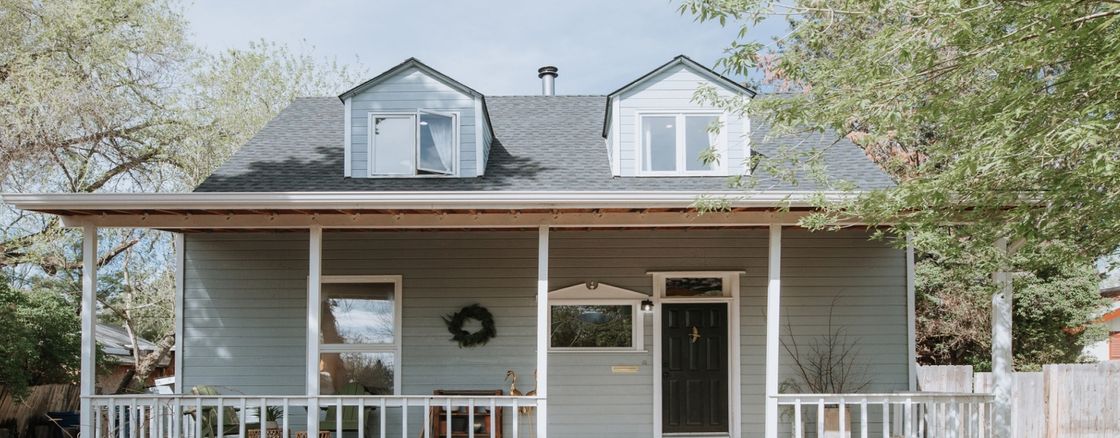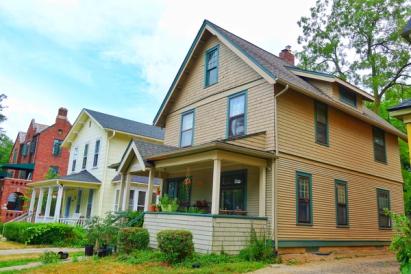Home Ready Home Possible
Written by:
Own Up Staff
Own Up is a privately held, Boston-based fintech startup that is on a mission to make sure every home buyer receives a fair deal on their mortgage by unconditionally empowering individuals with customized data, personalized advice, and unprecedented access to mortgage lenders to create better financial outcomes and simplify the home financing experience.
See full bio

Fast Links
Homeownership is called the American Dream, a dream the U.S. Census Bureau tells us 65.1% of all households attained in the fourth quarter of 2019. But this number is misleading. For households making more than the median family income, homeownership is at 78.8%. For households making less than the median family income (which disproportionately includes minorities), the homeownership rate is 51.4%. Neither of these numbers has changed much since 2014.
Going further back to 2005—at the height of the housing bubble—low-income homeownership rates were similar to what they are today. Higher income homeownership rates, though, were much higher—6 percentage points higher than now. This highlights a common misconception about the housing crisis in 2008: It did not, as perceived, disproportionately affect minorities and low-income households. Instead, that group has always faced more barriers to homeownership.
The Brookings Institute reported this as one of the biggest lessons of the financial crisis, calling the low-income homeownership “a Catch 22 problem that must be broken.” Access to home ownership helps build wealth and financial stability as mortgages are often lower than rent and build equity over time, but financial stability is needed to access home ownership.
For this reason, the Home Ready and Home Possible loan programs focus on low- and -moderate income borrowers. The programs address the main barriers to home ownerships, as defined by the Urban Institute: large down payment, credit score, affordability and access to down payment assistance.
The Low-Income Borrowing Option
The better known government-backed loan programs focus on a specific segment of homebuyers and include FHA loans often marketed to first-time buyers, VA loans for veterans and USDA loans for people buying in rural areas. These programs offer lower down payments and less stringent terms than conventional loans, and are open to buyers of differing income levels.
Home Ready (by Fannie Mae) and Home Possible (by Freddie Mac) are only available to low- and moderate-income families. The government-backed loans come with a down payment as low as 3 percent. This is far below the 20 percent required for a conventional loan.
Borrower Criteria
The Home Ready and Home Possible programs are very similar. The key characteristic is that they are income based. Which program a borrower is offered is based on which program the lender underwrites to. The criteria for the programs include:
- Borrower income must be below 80 percent of the area median income (AMI) as of July 2019, with some exceptions based on the properties location.
- Adjustable-rate mortgages (ARM) are allowed.
- Borrowers with nontraditional credit histories can be considered. Otherwise credit scores as low as 620 are accepted.
- Reduced mortgage insurance options.
- Single-family homes of 1- to 4 units, manufactured homes, condos and planned unit developments all qualify, with some limitations.
- Loan to value (LTV) limits of up to 97%.
- Homeownership education requirement.
- A debt-to-income ratio up to 50% depending on the loan.
How these Loans Help Low-income Borrowers
Because of the tighter credit environment following the housing bubble burst, many borrowers have been shut out of the market and have not been able to take advantage of low interest rates and affordable home prices. Here is how Home Ready and Home Possible lift these barriers:
- Down payment and access to down payment assistance: The down payment requirement can be met with money from gifts, grants and a second loan through the Community Seconds (Fannie Mae) program or Affordable Seconds (Freddie Mac).
- Credit score: Borrowers without a credit score can provide nontraditional credit options. These can include a year-long history of on-time housing payments and on-time history of other payment history including utilities, child support and school tuition.
- Affordability: Depending on the loan type, options include reduced mortgage insurance coverage above 90% loan-to-value compared to conventional loans, median income exceptions can be made in high-priced areas and alternative income qualifications are available to people working in public service jobs (police, firefighters, health care teachers).
Comparison to FHA Loans
Home Ready and Home Possible loans are similar to FHA loans in that they offer a low down payment of as little as 3%, compared to as little as 3.5% for FHA loans. But Home Ready and Home Possible loans offer these key advantages over FHA loans:
- Cancellable mortgage insurance once home equity reaches 20%, with some restrictions.
- Immediate appraisal orders from lenders.
- Free from geographic restrictions on loan amounts.
Are these Loans Risky?
Some people may worry that these are alternative loans due to their reduced qualification requirements. This is not the case. By law, a qualified mortgage is one where borrowers are presumed to have the ability to repay and lenders are protected from litigation claiming they failed to verify the borrower’s ability to pay. Loans backed by Fannie Mae and Freddie Mac must meet these standards.
Who Underwrites these Loans?
Many lenders and banks will offer Home Possible and Home Ready Loans. Correspondent lenders who
underwrite a loan and then sell it to a larger mortgage lender also offers these loans. Most credit unions or smaller banks will not.
How We can Help
We started Own Up to empower homeowners with personalized data and unbiased advice so they can make the best financial decisions for their unique situation. Our uniquely transparent business model is in perfect alignment with the customer, so we are only incentivized to act in your best interest, not ours. We give customers honest, expert advice, whether that means helping you apply for a Home Ready or Possible Loan, or explaining why it is not a good fit for your situation and offering advice on alternatives.
If you want to learn more and are new to Own Up, take our five-minute questionnaire to build your profile and schedule a call with an expert Home Advisor to get started.


